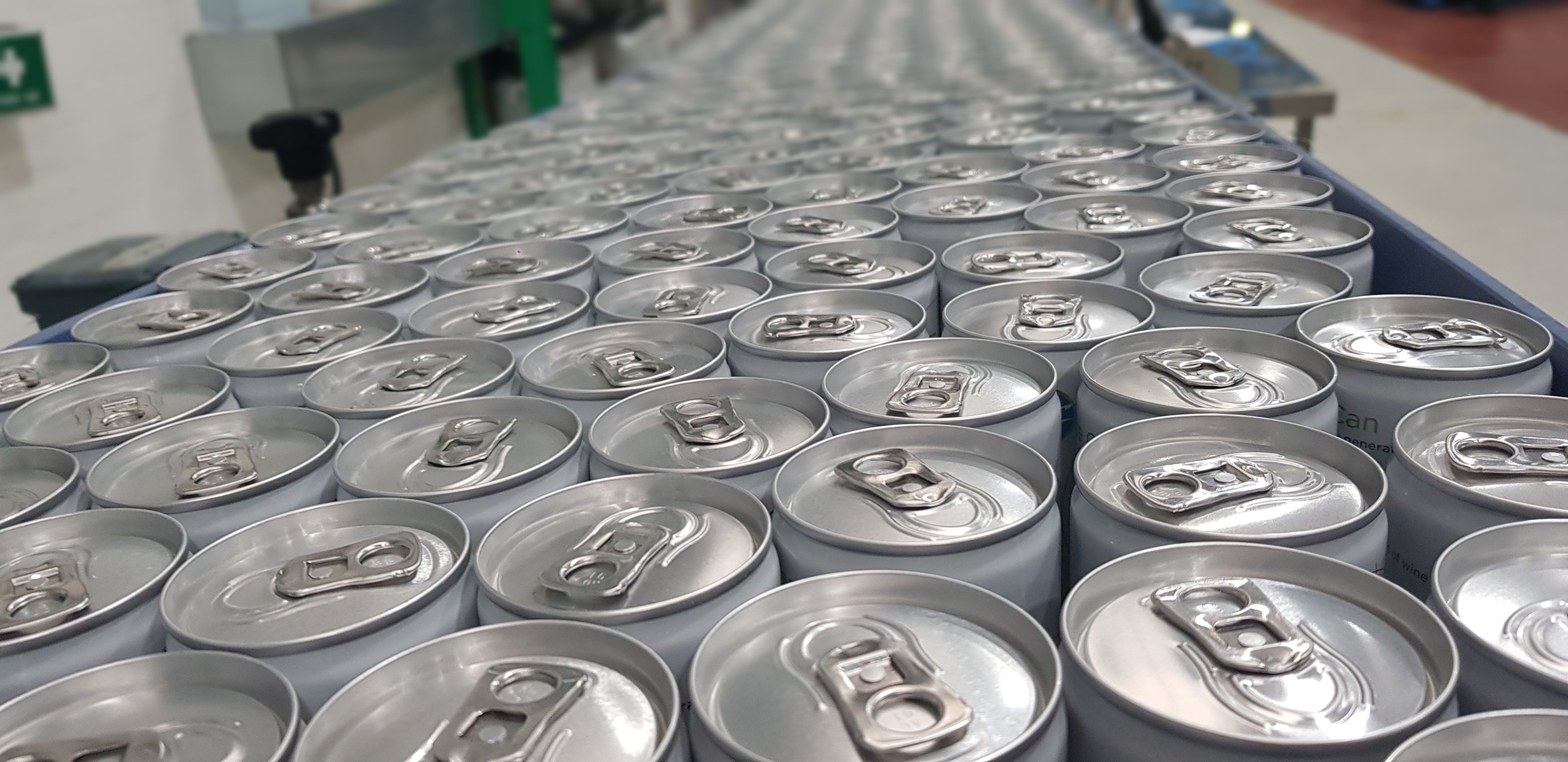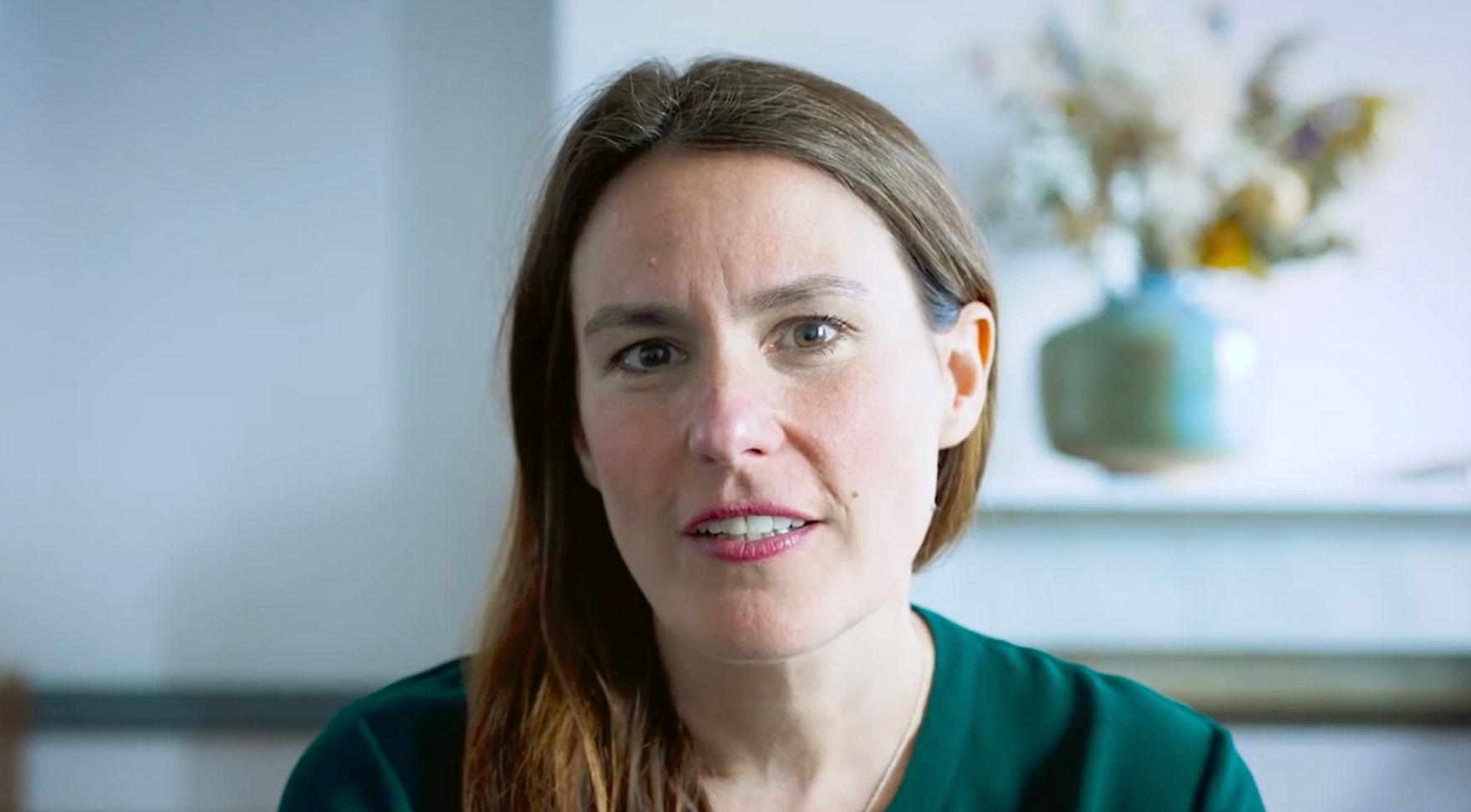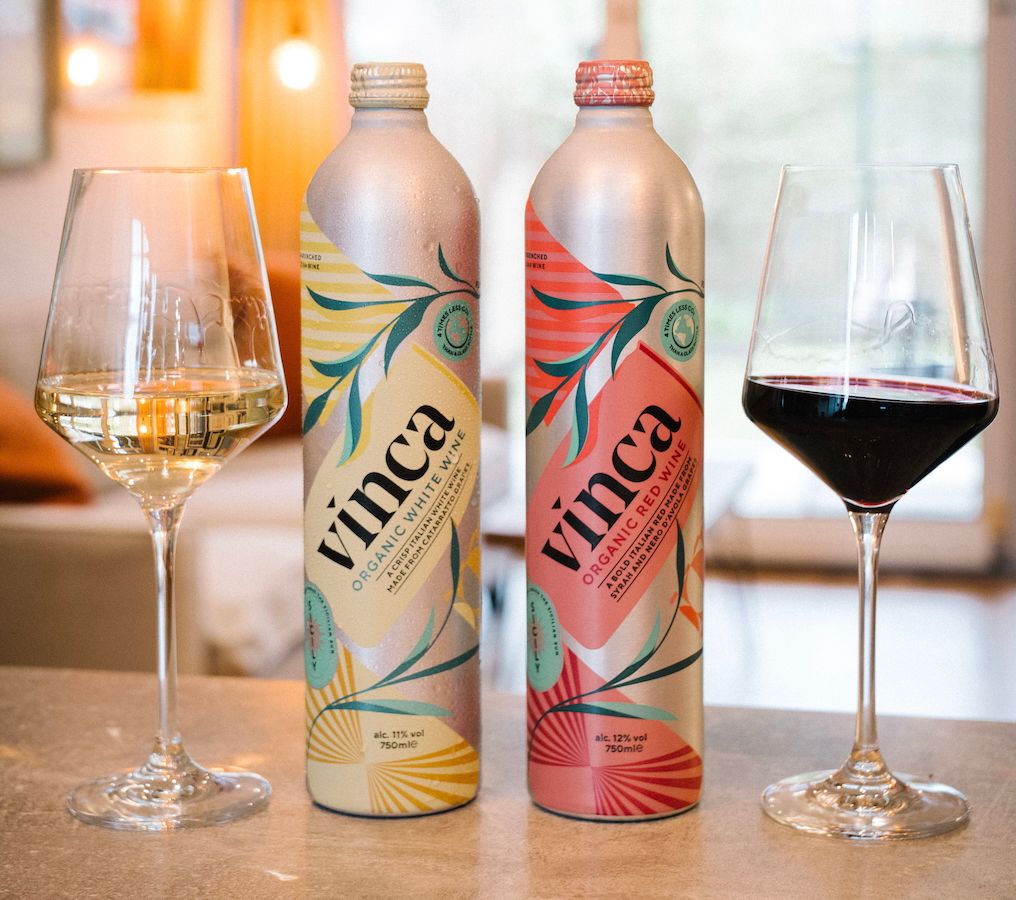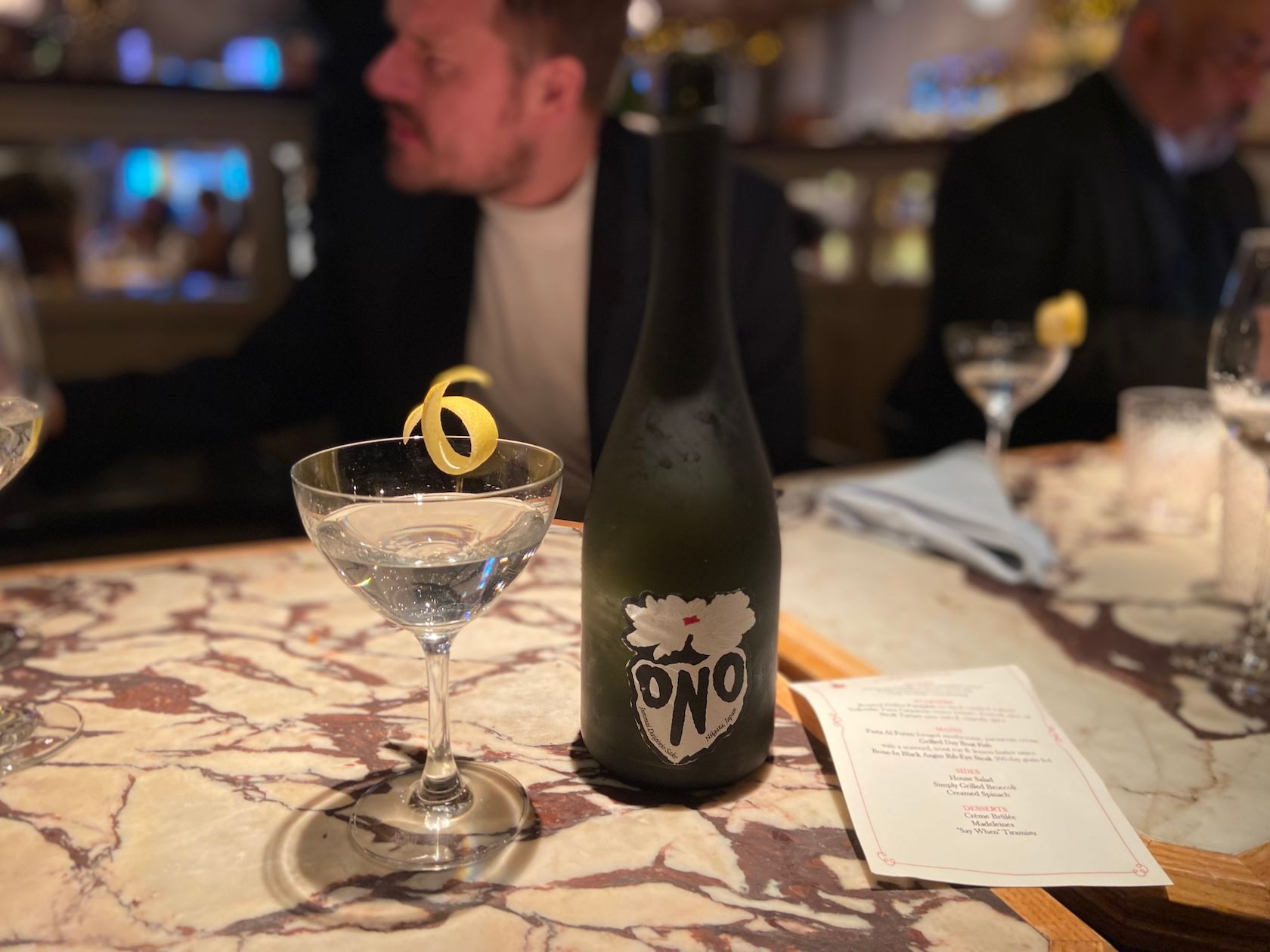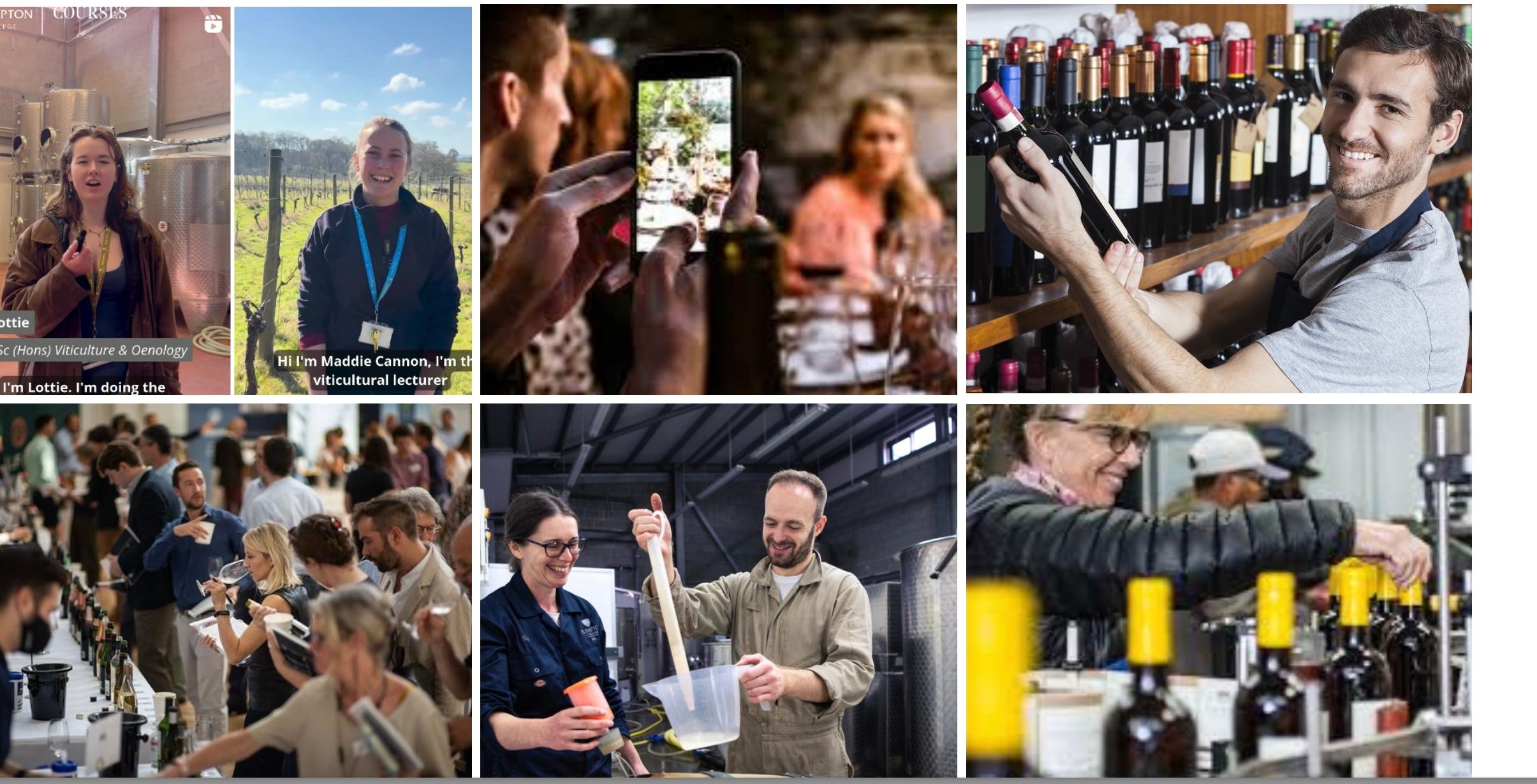Now bottling plants don’t normally make the news, but Greencroft Bottling’s decision to install the UK’s first canning line for wine has repercussions for the rest of the wine and drinks industry.
When the story of the rise and fall of plastic packaging is written, the festival goers of Glastonbury will warrant at least a footnote.This year, its famous founder Michael Eavis introduced an outright ban on plastic bottles, forcing suppliers to think hard about how to keep revellers refreshed, but also sending a signal louder than the famous Pyramid Stage about the way the world is heading.
Although the wine industry is naturally synonymous with glass, it has been heavily reliant on plastic for a plethora of convenience formats – think minibars, picnics in the park, or British Airways ‘Buy on Board’.Now, the winds of change may be about to blow those lightweight bottles into the background, with cans taking their place.A significant step in this wine packaging revolution came this month, as the UK’s first wine canning line whirred into action at Greencroft Bottling in County Durham.
Competitive advantage
For any business putting sustainability at its core, the move away from single-use plastic is probably the most pressing issue of the moment, but the process of change invariably leads beyond its own front door, with the need for key supplier partners to get their own ducks in a row first.Greencroft Bottling hopes that by being a first mover on canning wine in the UK, it can give its customers the chance to gain competitive advantage as well.
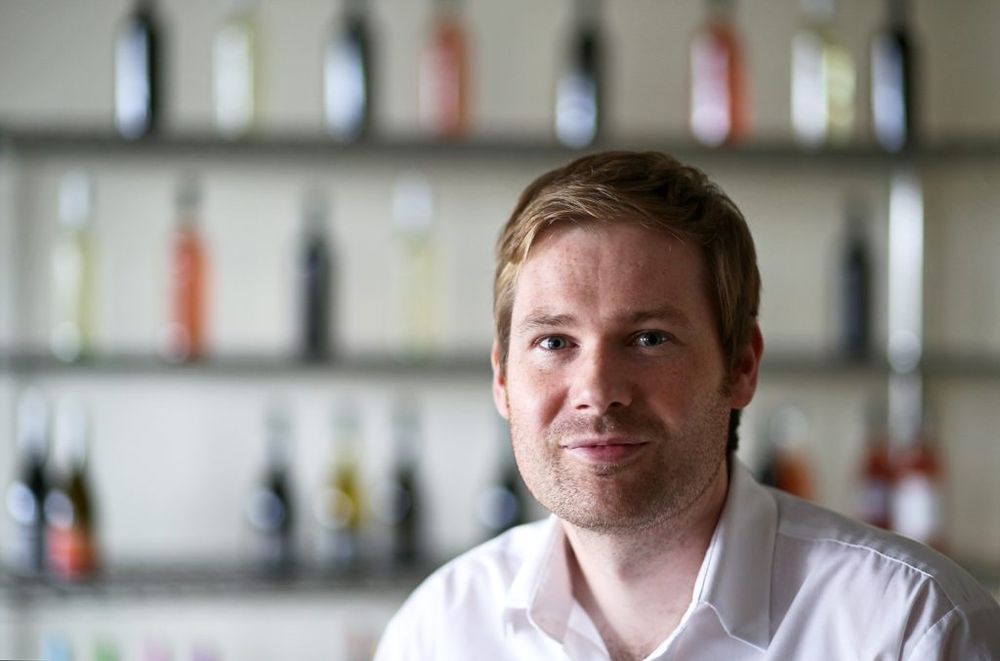
Greencroft’s Trevor Lloyd says its responsibility to provide the right packing facility for its customers
“It’s all about future market demands.We’re seeing a growing trend towards different formats, and we are seeing significant growth in cans”, says Trevor Lloyd, director of planning and procurement at Greencroft Bottling, “so this is about providing our customers with the capability to switch to a format that is fully recyclable”.
Thanks to a big investment in sustainable energy by its parent company, Lanchester Group, Greencroft’s bottling lines are powered by wind turbines, meaning the renewable energy used for the canning process doesn’t add to an individual product’s carbon footprint.
“For Greencroft, being carbon neutral is just the beginning”, Lloyd adds. “Now we can add the benefit of transport costs being reduced, with cans being lighter in weight, plus it’s a product that offers a full circle, because 100% of a used can will go back into the manufacture of another.It can be recycled in as little as 60 days and it can potentially be done infinitely”.
Growing fast
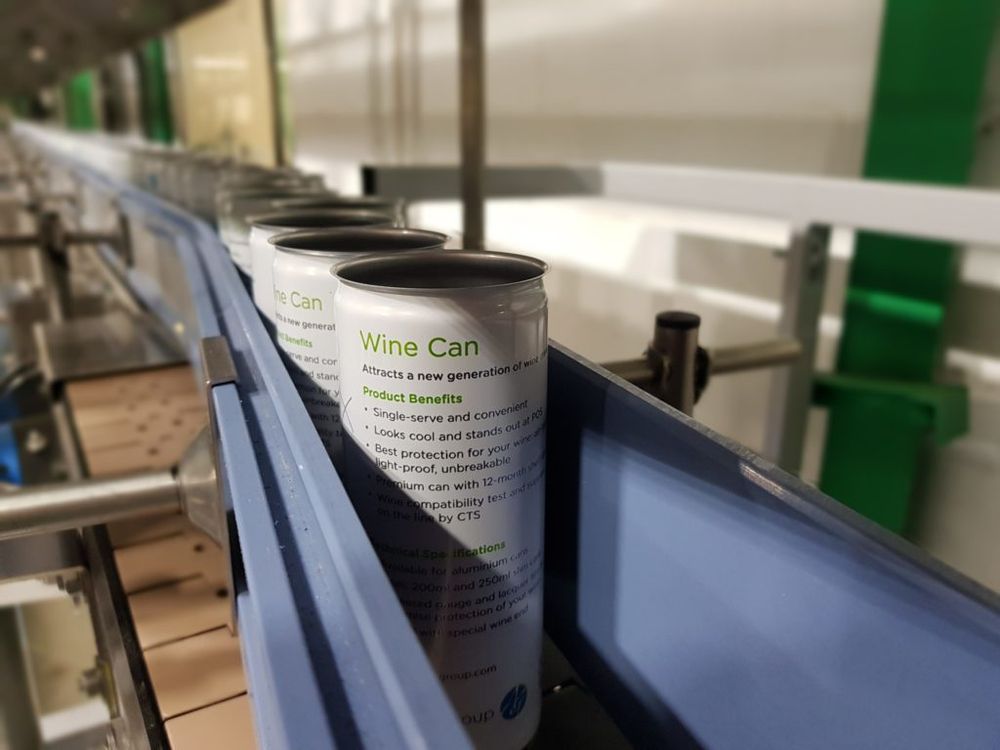
Coming your way soon: the momentum behind canned wine looks like being unstoppable
Cans are currently the fastest growing new format for wine, with growth of around 6%, year-on-year across Western Europe.Globally, figures from Euromonitor suggest the number of wine cans on sale has more than doubled in a decade to around 300 million.It seems snobbery is also being forgotten: in the United States, where canned wine has been embraced faster than elsewhere, the premium sector has also dipped a toe in the market, with a number of wines from high-end Napa recently released in can.
Whilst canned wines provide an opportunity to target environmentally conscious wine consumers, it is the practical benefits that appear to be driving current growth: cans are shatterproof, easy to chill and light to carry.There is also the advantage of a single serve, as public health messages on portion control and alcohol intake resonate with consumers.For producers, the fact that cans are airtight, resistant to light strike and guaranteed for a year is an added bonus.The current glass shortage also makes it an opportune time to launch a canning line.
Requiring a £2-million investment, Greencroft’s new canning line delivers 17,000 units per hour, with inbuilt carbonisation capacity as an option, initially filling 200ml and 250ml slimline formats, but it’s the 187ml can, being introduced early next year, that appears to excite Lloyd the most: “We really think small formats have a big future, especially in convenience retail and travel, whether sparkling or still, where cans could easily replace plastic and glass.”
Among the first customers to use the new facility is Greencroft’s sister company, Lanchester Wines.“It’s 100% in line with our strategy”, says director of sales, Mark Roberts, “we’re a family business that puts sustainability at its heart”.
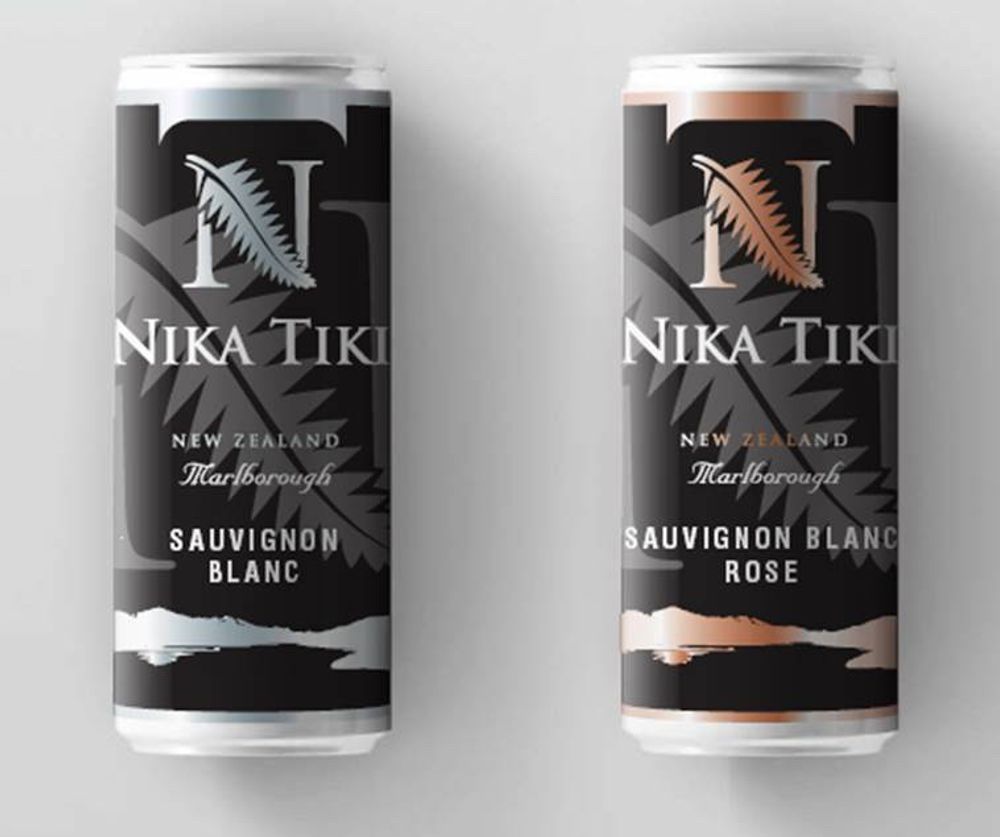
Lanchester Wines’ popular Nika Tiki Marlborough Sauvignon Blanc and Sauvignon Blanc Rosé will be first down the canning line, followed by its Hacienda de Calidad Argentinian Malbec. “We’re working with all our normal channels in the trade”, Roberts says, “but we also see real potential here to activate in different sectors too, from travel retail to festivals, and we’re looking at bringing out wines in the 187ml format as soon as we have the product available to us.”
The shift to canning, for convenience products, also presents an opportunity to completely rethink the branding of such lines. Roberts believes it could reinvigorate the sector: “Wine is the original craft beverage.You only need to look at what the craft beer business has done, in terms of having some fun with the branding, to see what we might be able to do for wine”.
Could we yet see a limited edition ‘cuvée Glastonbury’, in specially branded can?It would surely be a fitting response to its groundbreaking plastic bottle ban.
- David Kermode is a freelance writer, broadcaster and consultant, whose clients include The Lanchester Group.
